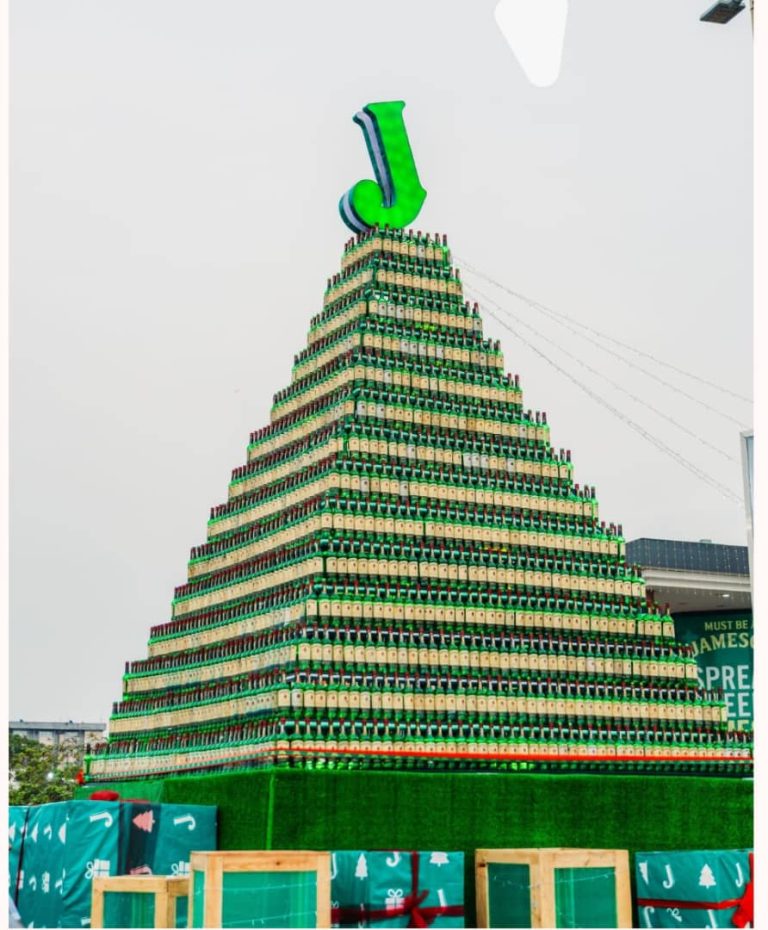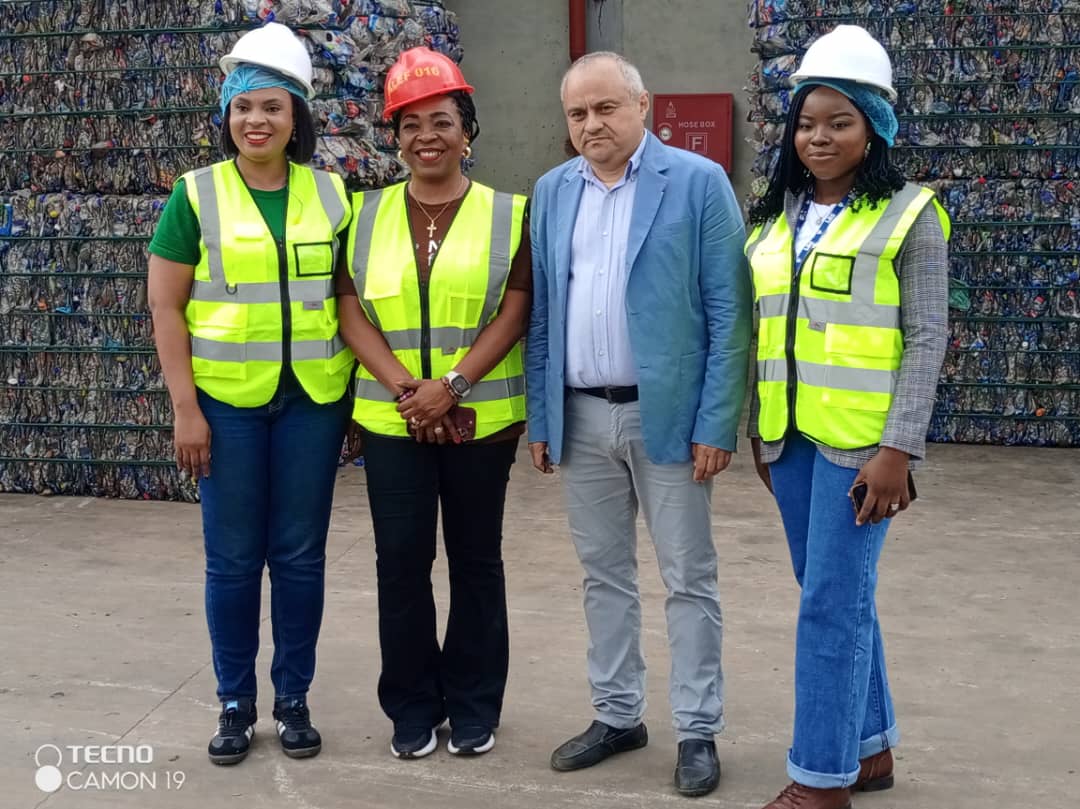
By Okosun Dennis
In a world that is witnessing increased population growth, rising urbanization and unimaginable emissions coupled with climatic change that is affecting human health, companies and organizations are fashioning a more proactive way to deal with rebounding negative outcomes or effects through a sustainable waste management process.
To reduce such waste, it becomes imperative to retrieve and recycle plastic materials by engaging in aggressive recovering of disposed plastic waste in order to free humans from endemic disasters that might crept in if left to flourish.
Over the years, Nestle Nigeria Plc has carved a decent niche for itself as an international brand that have created an enabling, friendly operating business environment that respect the rights and conviviality of consumers.
Creating a sustainable environment where certain measures are flagrantly violated comes with enormous cost – financial cost and human capacity involvement. Such measures are not only limited to growing the capacity of its work force but extended to other organizations that in one way or the other, helps to fast-track the process of achieving such development goals.
As a result, Nestle Nigeria has deliberately and consciously engaged avalanche of partners to mitigate cost effectiveness, speedy such goals and create a more convivial environment for mutual comfort and well beings.
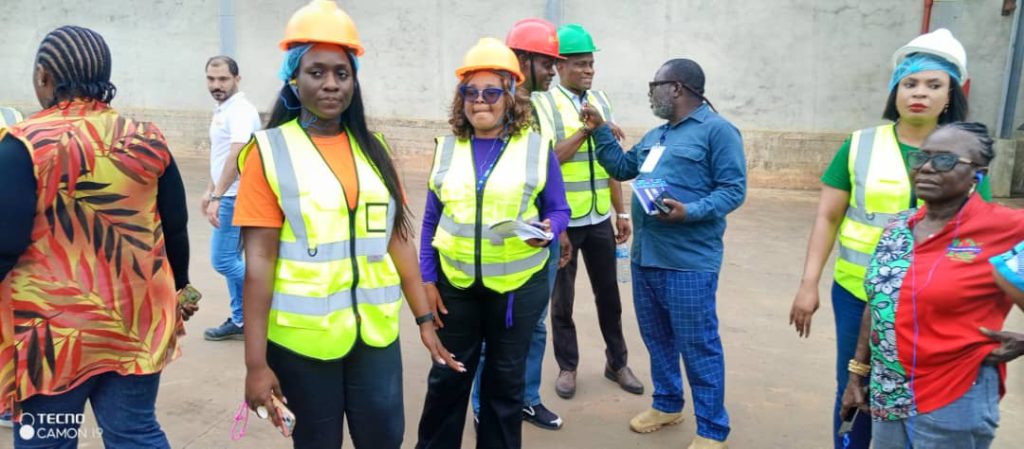
PARTNERSHIP WITH ALEF
Its collaboration with ALEF Recycling Company located at Agbara in Ogun is to ensure a sustainable environment devoid of waste, which, often times, end in landfills or litters that could be recycled for a friendly ecosystem.
By 2050, predictably, fishes in the oceans would feed on plastic waste as most of these plastic settle in the sea berth. With such deductions, studies revealed that 75% of all plastic ever produced by man have accumulated in landfills and the natural environment. And with the world plastics waste surging to an unprecedented proportion of an estimated 20 billion by the end of 2050, it has become necessary for production companies in food and nutrition to rationalize on how to limit their waste emission for safer consumptions.
To galvanize change and sustainability, Nestle Nigeria is stepping up to this challenge by helping in achieving plastic neutrality through its plastic neutrality options.
Therefore, it’s engaged in robust partnership drive with ALEF committed to a waste-free future, where almost all its post-consumer packaging – plastics – don’t end up in landfills or oceans. Through its consistency, Nestle can achieve this ambitious target.
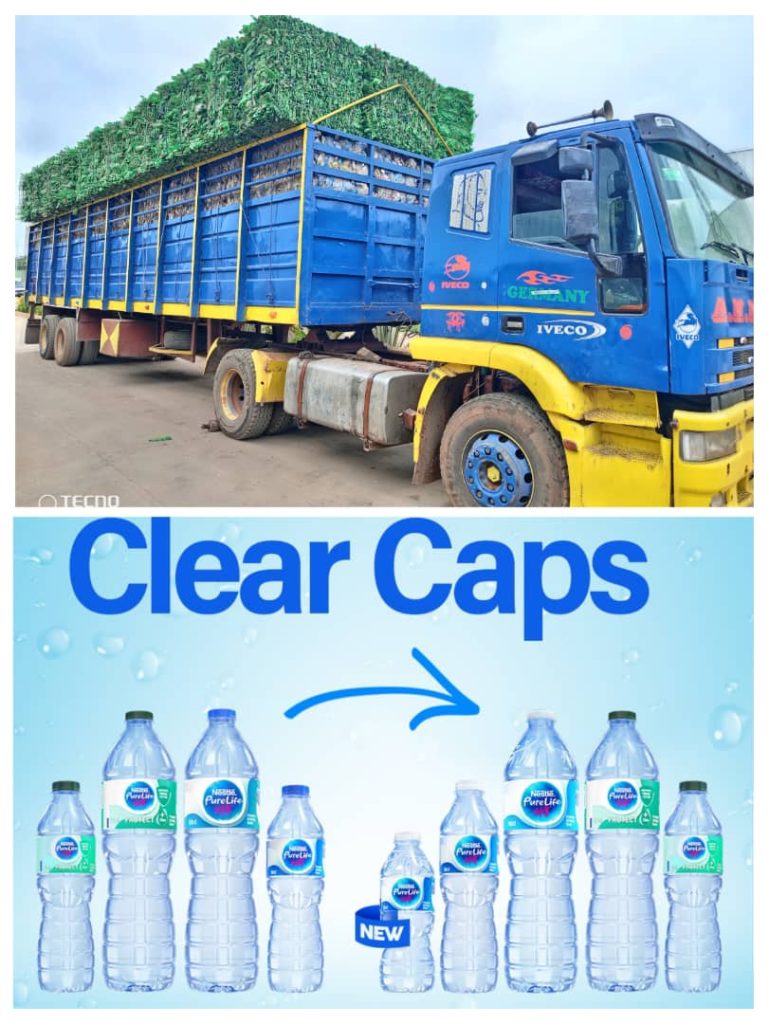
EXPERIENTIAL VISIT TO ALEF
ALEF is a recycling company located at Agbara with a state-of-art world-class facilities. Established in 2018 with one of the most advanced recyclers of PET bottle materials in Nigeria, it converts Pet Flakes Food Grade PET Pellets or Resin Supplier to many established companies with track record of feeding domestic companies and export to Europe of its finished products.
Its ability to maintain standards in its production capacity and quality endeared European Food Safety Authority (EFSA); U.S. Food and Drug Administration (FDA) and Standard Organization of Nigeria (SON) getting their approvals.
First, Nestle Nigeria has been engaging the media to drive its sustainability project; create robust consciousness and adequate awareness. Such engagements found expression in the training of media professionals at the Sustainability Centre, School of Media, Pan African University, equipping them with desired tools to report Nutrition, Health and Environment.
In the 2025 edition, eight years after the initiative came on board, Nestle organized a media tour.
The journalists who were conducted round its gargantuan of facilities by Wissam Ramzawi gave an insight into the working systems and how they converts plastic waste that would have been domicile in seas and landfills into reusable materials.
The production process which begins at the collection centre, separating the extremely dirty ones, which are later resold to companies like Lafarge, the bottle are watered, paving the way for the removal of labels to dry cleaning and eliminating sand and other impurities and washing outside and anything around the bottle.
The collaboration with Nestlé shows how manufacturers can close the loop, collect, recycle, reuse and not just dump plastics into the environment,” Ramlawi added.
Disclosing that the factory takes in around 20,000 tons of bottles per year, added that efforts are underway to expand capacity to meet rising demand from food and beverage companies across West Africa.
The plant has been creating local jobs and building valuable recycling infrastructure within Nigeria. It has been training waste workers, engaging employees, and mobilizing volunteers to generate behaviourial change and elevate often overlooked contributors to recycling ecosystems.
ALEF employs hundreds of waste pickers, collectors, and SME aggregators in its supply chain. The company emphasized that investing in the informal waste economy is critical for scale and social impact.
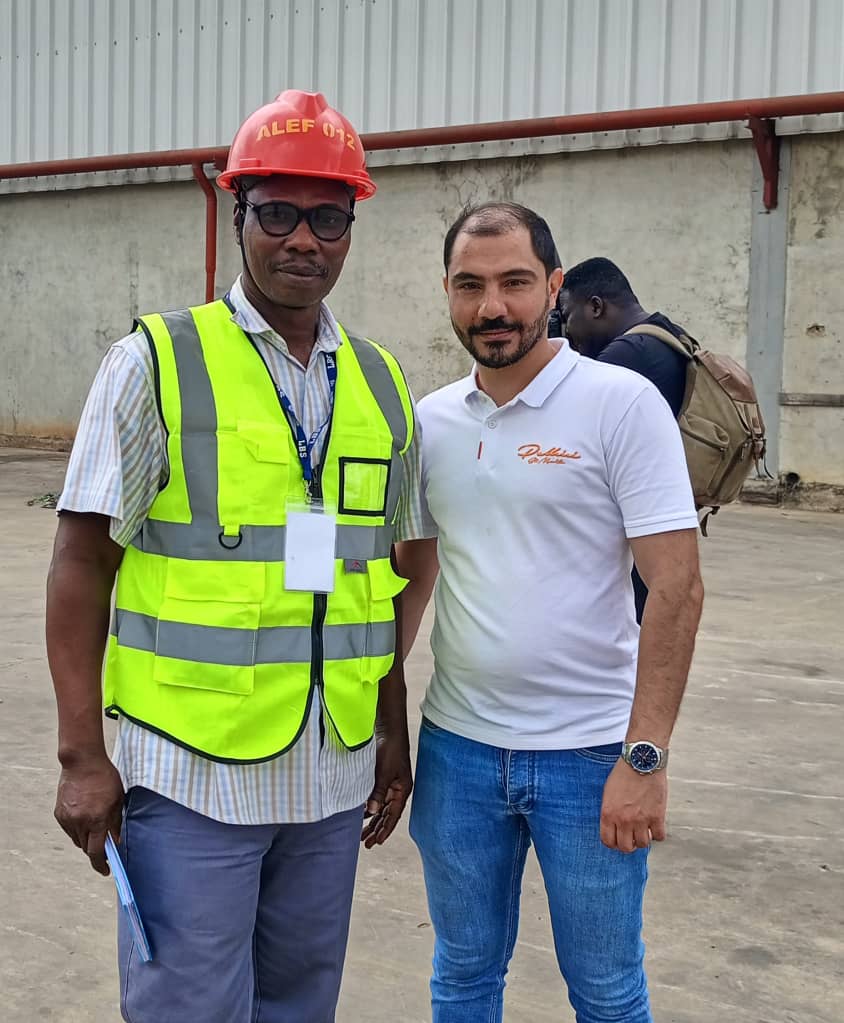
COLLABORATION AND PACKAGING INITIATIVES
In his brief, the Packaging Development Manager, Nestle Nigeria plc, Mr Adewale Kayode underscored the partnership with ALEF and how it has contributed to reducing packaging waste littering landfills thereby causing negative impact on the environment.
“We want to reduce going to the market continuously to buy virgin materials. Therefore, we have to leverage on what we have produced into the environment. People now see these collections as a means of generating income. Our collaboration with ALEF has enhanced people’s economic empowerment/income which bring about circular economy,” he said.
“We get half from virgin materials and the other from what is generated to have 50% recycled PET. However, our mission is to ensure that one third of our packaging materials are recyclable by the end of 2025. We have reduced our package of our Milo laminate when you juxtapose it with other products. The size may be small but the content is the same with others because we are conscious of the environment,” he added.
According to him, the more users reduce the packaging they churn out into the environment, the worse the nuisance it’s going to cause in the community.
“We are able to recycle the laminate to reduce the negative impact on the environment. We are doing a lot at Nestle Nigeria to ensure our activities don’t have any negative impact on humans and environment. We’re always thinking about people,” Kayode reiterated.
While emphasizing the inevitability of such collaboration with ALEF, the Corporate Communications, Public Affairs and Sustainability Lead, Nestle Nigeria, Dr. Victoria Uwadoka, said: “At Nestle Nigeria, two things are important. One is the people and the other is the product. We are unlocking the power of food hence we take Sorghum to transform to malt and Milo mixed with cocoa; maize into Golden Morn and fortified with iron to enhance the quality of life and nutrition.”
Reiterating that their ambition is to achieve zero waste to landfills; she said everything that comes out of our operation, is to be reused, recycled.
These entire positive attribute do not go without huge challenge.
“The challenge we still have is to remove exactly the bottle of “Pure Life”, we make sure we remove one bottle from the environment so that we can have zero impact. We are working towards full circularity hence we are partnering ALEF. We are finding a home grown solution, we are passionate about it.”
On collaboration with Nestle, the Managing Director ALEF, Wissam Ramlawi observed that doing business with Nestle has been mutually beneficial and strategic.
“The collaboration with Nestlé shows that we can close the loop, collect, recycle, reuse and not just dump plastics into the environment. We started operation in 2023 and today, we take in 20,000 tonnes of bottles per year,” he said, reiterating that their intention is to expand production capacity, upscale the geometrically rising demands from their customers locally and internationally.
CREATING JOB OPPORTUNITY AND REDUCING POLLUTION
The plant has been creating local jobs and building valuable recycling infrastructure within Nigeria. It has also been training waste workers, engaging employees, and mobilizing volunteers to create behaviourial change and elevate often overlooked contributors to recycling ecosystems.
And its supply chain comprises hundreds of waste pickers, collectors, and SME aggregators. The company emphasized that investing in the informal waste economy is critical for scale and social impact.



